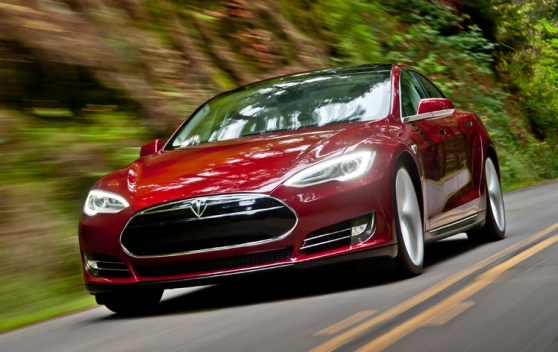Updated 2/12/2013
If you get into a dispute over facts, it always helps to have a nice, clean, data trail.
Tesla Motors chief executive Elon Musk is unhappy enough with a recent New York Times review of his company’s new electric Model S sedan that he says he’ll publish the car’s digital log of the reviewer’s actual drive — which, he says, differs substantially from the account in the Times.
“We will publish the actual logs on the car and it is crystal clear,” Musk said in an interview with Bloomberg West earlier today (see video below).
The Times reviewer, John M. Broder, took a Model S for a 200-mile drive along I-95 recently, starting in Newark, Del. and ending up in Milford, Conn. That’s well within the 300-mile range that Tesla claims its car’s weighty lithium-ion batteries are capable of.
But Broder barely made it. He coasted in to the charging station in Milford with barely any power left. The car had shut off the heater to conserve energy and he drove as conservatively as possible most of the way.
Talk about range anxiety.
But Musk claims Broder failed to mention how much he was punching the accelerator early in the ride, a move that Tesla warns its customers will drain the battery faster. Also, Musk says Broder took a detour through Manhattan. And he didn’t fully charge the car before departing.
“If you do all those three things, which we were clear should not be done and obviously common sense suggests should not be done, then you will not be able to go as far,” Musk said. “If you did not fill a gasoline car’s gas tank far enough, then went on a detour and ran out of gas, you should not be surprised if that occurs.”
Musk hasn’t actually published the logs yet. But his threat might worry ordinary buyers of the car, too. If he can pull the location and driving profile of a reviewer’s car, could he do it for anyone’s?
Musk seems to recognize the potential fallout, and tried to assuage those concerns in the same interview.
“We are very sensitive to privacy, so these logs are only turned on with the explicit permission of the customer and a signature. For media drives we turn on logging, which tells us the position, speed, what someone is doing with the car in terms of charging.”
In other words: Model S reviewers, you better be honest. Tesla is watching you.
Added 2/12/2013: The New York Times has responded to Musk’s claims with a very detailed explanation by Broder.
Top photo: Tesla Motors


